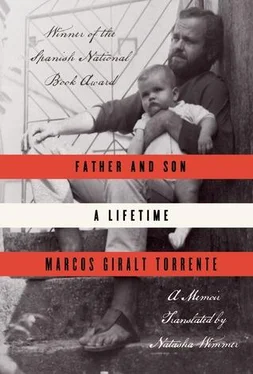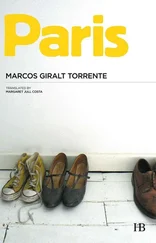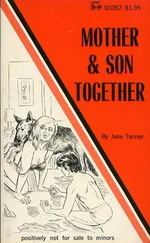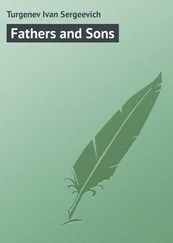* * *
Sometimes those who are about to die rehearse or perform final acts that aren’t so much the epitaph that sums up a life as a way of making amends or settling a score that they believe is still pending.
This was my greatest fear for a long time. In some sense — it’s clear to me now — I may have begun writing to exorcise it. I was afraid that much of what my father did once he knew he was sick — first with hope and later with the growing conviction, whether articulated or not, that he was going to die — was part of a performance that had me in a privileged seat in the audience. I worried that not all his decisions had been arrived at naturally, as the expression of his desires, and that instead they were shaped by how he wanted to appear before others, especially me. It worried me that, as suggested by events previously discussed, he spent much of his time calculating how to rewrite a part of his life — in other words, that the urge to shape the coming months was fed by the need to correct the past, to strive for a death that would bring to a harmonious close everything in his life that was lacking in harmony; that in all he did, in the decisions he made, there was an element of overacting determined by a past that tormented him. Specifically, the part of his past with which I took issue.
On the other hand, the possibility that there was no overacting or pretense, that he behaved the way he did out of conviction, which would suggest that he really did feel some remorse, was no less frightening. He hinted as much in a thousand ways toward the end. He regretted two things, he said. He didn’t rank them: having been inconstant in his career as a painter, allowing himself to be distracted by fleeting romantic conquests; and having neglected his family, for similar reasons.
There’s a third possibility, complementary to the latter, which is that his sole intent was to surreptitiously indoctrinate me about my future, as if to say: what I did is what you shouldn’t do.
Ultimately, my father faced death the way he had lived: close-lipped, in silence, entirely committed to the idea of himself that he always wanted to project, an idea that wasn’t sentimental in the least (though he himself was), that rejected any hint of self-importance, that was allergic to the notion of arousing compassion. Just as, in life, he was terrified of words, terrified of their capacity to reveal his inner self, in his illness, aside from brief laments or the occasional plea for consolation, he didn’t allow himself to speak of death. He fell apart only a few times: twice that I know of, and both times when he was alone with me. In public he never complained. Even when what was happening became too calamitous to ignore, he tried to assume an attitude of resignation. His only preparations, shortly after he was operated on — when the progression of the illness hadn’t yet made him give up hope of a cure — were to apostatize and make a living will. After those two procedures were completed, he retreated into silence and delegated to me everything that might be necessary from then on: doctors to see, places to live, life itself. He wanted nothing to do with anything. He made just one request of me: that when the moment came, instead of a funeral there would be a party at which his friends could raise a glass.
Once he had accepted death, or at least the possibility of it, the only thing that seemed to trouble him was the image of himself that would linger in the minds of those who knew him. Beyond calling attention to his views on religion by making the symbolic gesture of apostatizing, beyond controlling his own demise to make certain — by means of the living will and my cooperation — that he wouldn’t continue to exist past the moment when his mind failed him, beyond orchestrating his own farewell ceremony, his wish was to seem strong in the face of adversity, and in fact he was strong. Strong and brave: I don’t think there’s anyone who dealt with him who thinks otherwise. Not even the doctors or the nurses. With all of them, even in the worst moments when he was a shadow of his former self, he stood firm. He always had a joke ready to fill the silence left by words that remain unspoken when there’s no need to state what’s already plain. He sought strength in this, in his need to rise to the idea he wanted to convey of himself, and though the inner self he concealed was much darker and his nights and reflections were doubtless long and desolate, he found what he sought.
He was always observing himself from a distance, always watching himself. He wanted to direct things, guide the plot of his illness and future death, and had it been within his reach, I’m sure he would have kept it up until the end. In addition to the legal proceedings he undertook at the beginning of his ordeal and the instructions he gave for after his death, this is illustrated by two revealing anecdotes.
The first is from the time I took him to see my mother’s house in Galicia, when he was still able to lead a more or less normal life, though in a limited way. We were in the train compartment the morning after our departure. We had woken up, he in the lower berth and I in the upper, and after saying good morning, he confessed with a yawn that before he fell asleep he’d thought that he wouldn’t mind dying there, safe with his son.
The second is from a few months later, from the trip to Kenya. After our exhausting bus ride, once we had arrived at my aunt’s house, I kept watch over him for three nights, his hand in mine, and on the worst night he said, as if to himself, that after all it wouldn’t be so bad to die in Africa.
These were the only two times in a year and a half when he referred to his death so explicitly, and both times a kind of manipulative impulse can be glimpsed, as if now that he had gotten used to the idea, what worried him more than death itself was the impression he would make with it. An impression that included the moment and circumstances of its occurrence as well as everything that it brought to a close: his own life, the relationship between us. Ultimately, though different, the two imagined deaths aren’t so dissimilar; both feature me as companion and confidant. The first is purely sentimental: the idea of dying with your son while the two of you are happy together; the other is more romantic, with all the exotic associations of a place like Africa. But it isn’t only the content that’s theatrical here; theatrical too is his reason for making these seemingly inappropriate remarks to me, inappropriate for someone who’s near death and who’d be better off not speculating about it. By saying what he said when he did, he was indirectly providing me with an image of himself, helping to define a little better how he wanted me to think of him: as someone strong and with a touch of sarcasm that persisted even in the face of death, and as someone for whom the proper finish meant dying in the company of his son.
Of course, there’s nothing wrong with wanting something like that; the end he sought and surely achieved isn’t trivialized by his deliberate pursuit of it. As I’ve said, he drew strength from the image that he wanted to convey, and his behavior wasn’t any less genuine as a result.
It’s true: sometimes those who are about to die rehearse or perform final acts that aren’t so much the epitaph that sums up a life as a way of making amends or settling a score that they believe is still pending.
But don’t the dreams into which we project ourselves reveal as much or more about us as our real selves?
You don’t lie flagrantly in an epitaph unless you’re crazy. You sum up your life, offer your regrets, or project what you once wanted to be.
No one draws strength from emptiness.
Any further speculation would be unjust.
* * *
Читать дальше












